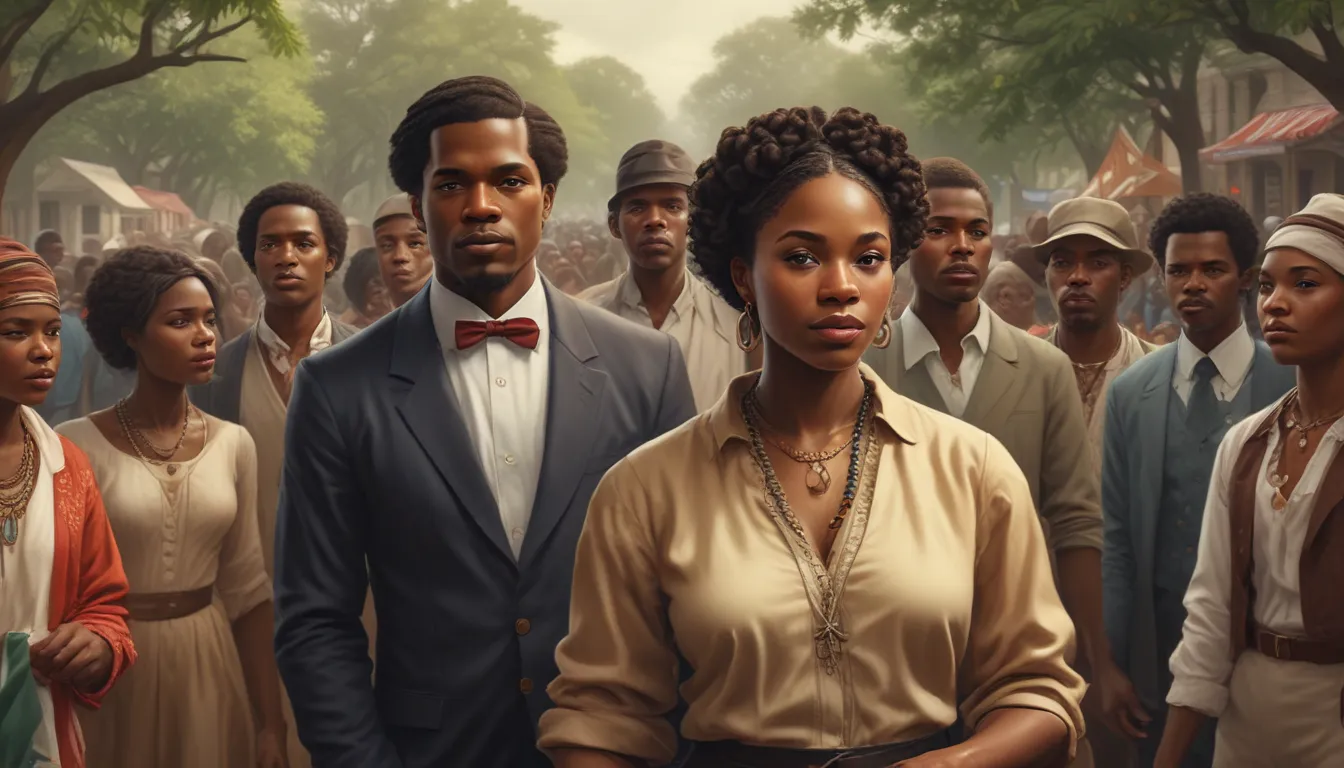The images in our articles may not match the content exactly. They are used to grab your attention, not to show the exact details in the text. The images complement the text but do not replace it.
Juneteenth, also known as June Nineteenth, is an annual commemoration of the end of slavery in the United States. This celebration holds tremendous historical significance, marking the day that slaves were finally granted their freedom on June 19, 1865. While the Emancipation Proclamation by President Lincoln had already declared the end of slavery two years prior in 1863, it took the troops of General Gordon Granger arriving in Texas to enforce this proclamation and set the slaves free.
Juneteenth: A Blend of Names and Origins
One fascinating fact about Juneteenth is that it has gone through several name changes throughout history. Initially known as Cel-Liberation Day, Emancipation Day, Freedom Day, Second Independence Day, and Jubilee Day, it eventually settled on the name Juneteenth. The term itself is a blend of June and Nineteenth, symbolizing the day of liberation for enslaved African-Americans.
The Birth of a Celebratory Tradition: Emancipation Park in Houston
In 1872, a group of former slaves including Richard Allen, Elias Dibble, Jack Yates, and Richard Brock made a significant purchase of a 10-acre parcel of land in Houston, Texas, for the sole purpose of celebrating Juneteenth. This historic land purchase, totaling $800, resulted in the establishment of Emancipation Park, a symbol of freedom and resilience for the African-American community.
Decline and Revival: Juneteenth Celebrations in the 20th Century
The 20th century saw a decline in Juneteenth celebrations due to the oppressive Jim Crow laws enforcing racial segregation in the United States. The Great Depression further dampened the festivities as black farming families migrated to urban areas in search of work. However, the Civil Rights Movements of the 1960s, led by figures such as Martin Luther King Jr., revitalized the Juneteenth celebration by advocating for equality and economic justice.
A Reminder of Struggles and Triumphs: The Juneteenth Legacy
Despite the jubilant announcement of freedom on Juneteenth, the reality for many freed slaves was far from easy. Former slave owners in Texas, reluctant to let go of their “property,” resorted to violence to prevent African-Americans from leaving. The hardships faced by freed slaves post-Juneteenth serve as a poignant reminder of the arduous journey to true liberation.
Symbolism and Recognition: The Juneteenth Flag
Designed by L.J. Graf, the Juneteenth flag carries rich symbolism in its design. Featuring a bursting star at the center with blue and red hues, the flag pays homage to Texas and signifies new beginnings and freedom. The colors blue, red, and white mirror the American flag, underscoring the shared identity of African-Americans as integral members of the nation.
Current Status and Future Prospects: Juneteenth as a National Holiday
While Juneteenth is recognized as a holiday in 47 states across the United States, it has yet to achieve federal recognition. As the oldest celebration commemorating the end of slavery in the country, the push for Juneteenth to become a national holiday continues. Hawaii, North Dakota, and South Dakota are the only states that do not observe Juneteenth, highlighting the ongoing journey towards broader acknowledgment and acceptance.
Evolving Traditions and Cultural Celebrations: Miss Juneteenth Pageants
In recent years, Juneteenth celebrations have evolved to include a diverse array of events and activities. Some groups and cities host Miss Juneteenth pageants as part of the festivities, showcasing talent, beauty, and cultural pride. From marches and parades to barbecues and flag raisings, the commemoration of Juneteenth varies across different states, reflecting the vibrant tapestry of traditions within the African-American community.
As we delve into the rich history and cultural significance of Juneteenth, it becomes evident that this celebration is not just a remembrance of past struggles but a testament to resilience, hope, and the enduring spirit of freedom. By honoring the legacy of Juneteenth, we acknowledge the complexities of history and the ongoing quest for justice, equality, and unity in our society. Let us embrace the spirit of Juneteenth as a beacon of progress and a symbol of unity for generations to come.






